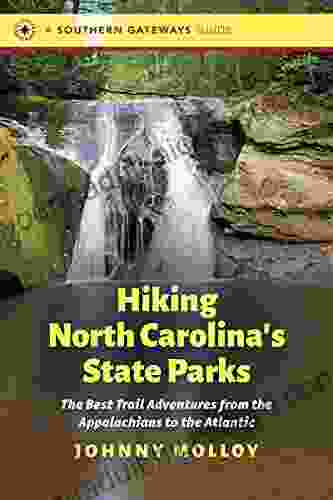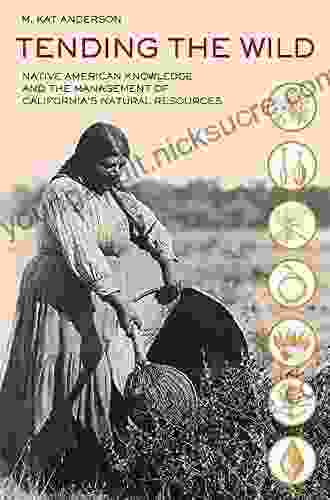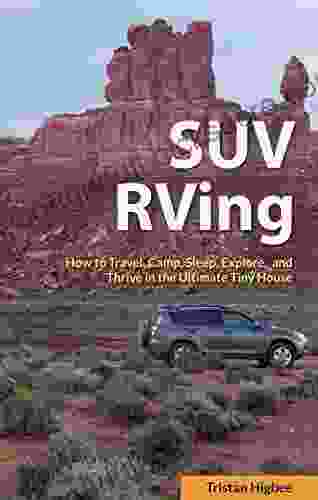Exploring Native American Knowledge and the Sustainable Management of California Natural Resources: A Comprehensive Examination

Native American communities have inhabited California for thousands of years, amassing a wealth of knowledge about the state's diverse ecosystems. This knowledge encompasses a deep understanding of plant and animal species, their habitats, and the intricate relationships that connect them. Furthermore, Native American cultures have developed sophisticated practices for managing natural resources, ensuring their sustainability for future generations.
Traditional Ecological Knowledge: A Foundation for Understanding
Traditional ecological knowledge (TEK) refers to the accumulated body of knowledge and beliefs about the relationship between living beings and their environment, passed down through generations within a community. For Native Americans in California, TEK encompasses a profound understanding of the natural world, including plant identification, wildlife behavior, and the interconnectedness of ecosystems.
4.8 out of 5
| Language | : | English |
| File size | : | 5854 KB |
| Text-to-Speech | : | Enabled |
| Screen Reader | : | Supported |
| Enhanced typesetting | : | Enabled |
| Word Wise | : | Enabled |
| Print length | : | 557 pages |
| Lending | : | Enabled |
TEK plays a crucial role in resource management. By observing and interacting with the environment over generations, Native Americans have developed a deep understanding of natural cycles, resource availability, and the impacts of human activities. This knowledge enables them to make informed decisions about harvesting, conservation, and the overall stewardship of the land.
Practices for Sustainable Resource Management
Native American practices for sustainable resource management are deeply rooted in their cultural values and beliefs. These practices encompass a holistic approach that considers the interconnectedness of all living things and emphasizes the importance of maintaining a balance between human needs and the health of the environment.
- Fire Management: Native Americans have traditionally used controlled burns to promote forest health, clear undergrowth, and maintain biodiversity. These practices reduce the risk of catastrophic wildfires and create diverse habitats for wildlife.
- Water Management: Native Americans have developed ingenious methods for water conservation and storage. They construct dams, canals, and reservoirs to capture and distribute water during dry seasons, ensuring a reliable water supply for both human communities and ecosystems.
- Wildlife Management: Native Americans practice sustainable hunting and fishing techniques to maintain wildlife populations. They establish seasonal restrictions, avoid overharvesting, and use traditional methods to deter poaching.
- Habitat Restoration: Native Americans actively engage in habitat restoration projects to improve the health of the environment. They plant native species, remove invasive plants, and create wildlife corridors to support biodiversity.
Benefits of Incorporating Native American Knowledge
Incorporating Native American knowledge into contemporary natural resource management offers numerous benefits:
- Improved Conservation Outcomes: Native American knowledge provides valuable insights into ecosystem dynamics and species behavior, enabling more effective conservation strategies.
- Increased Resilience: Practices based on TEK enhance the resilience of ecosystems to environmental changes, such as climate change and habitat loss.
- Cultural Preservation: Integrating Native American knowledge into natural resource management helps preserve cultural traditions and strengthen the connection between indigenous communities and their ancestral lands.
- Collaboration and Trust: Engaging with Native American communities fosters collaboration and trust, building bridges between indigenous knowledge and scientific understanding.
Challenges and Opportunities
Incorporating Native American knowledge into natural resource management faces certain challenges:
- Cultural Sensitivity: It is crucial to approach this process with cultural sensitivity and respect for Native American traditions and beliefs.
- Documentation and Accessibility: Much of Native American knowledge is passed down orally and may not be easily accessible or documented.
- Historical Trauma: The history of colonization and oppression can create barriers to collaboration.
Despite these challenges, there are promising opportunities for collaboration and knowledge sharing:
- Educational Partnerships: Partnerships between Native American educators and natural resource managers facilitate the exchange of knowledge and the integration of TEK into curricula.
- Community-Based Projects: Collaborative projects involving Native American communities empower them to manage their traditional lands and implement sustainable practices.
- Government Recognition: Government policies and regulations can recognize and support the role of Native American knowledge in natural resource management.
Native American knowledge holds immense value for the sustainable management of California's natural resources. By embracing their traditional ecological knowledge and practices, we can enhance conservation outcomes, increase resilience, and foster cultural preservation. Addressing challenges and seizing opportunities for collaboration will enable us to bridge indigenous knowledge with scientific understanding, creating a more sustainable and equitable future for both the environment and the communities that depend on it.
4.8 out of 5
| Language | : | English |
| File size | : | 5854 KB |
| Text-to-Speech | : | Enabled |
| Screen Reader | : | Supported |
| Enhanced typesetting | : | Enabled |
| Word Wise | : | Enabled |
| Print length | : | 557 pages |
| Lending | : | Enabled |
Do you want to contribute by writing guest posts on this blog?
Please contact us and send us a resume of previous articles that you have written.
 Fiction
Fiction Non Fiction
Non Fiction Romance
Romance Mystery
Mystery Thriller
Thriller SciFi
SciFi Fantasy
Fantasy Horror
Horror Biography
Biography Selfhelp
Selfhelp Business
Business History
History Classics
Classics Poetry
Poetry Childrens
Childrens Young Adult
Young Adult Educational
Educational Cooking
Cooking Travel
Travel Lifestyle
Lifestyle Spirituality
Spirituality Health
Health Fitness
Fitness Technology
Technology Science
Science Arts
Arts Crafts
Crafts DIY
DIY Gardening
Gardening Petcare
Petcare Angel Millar
Angel Millar Lisa Marie Mercer
Lisa Marie Mercer Yuu Tanaka
Yuu Tanaka Samir P Desai
Samir P Desai Petros Efthymiou
Petros Efthymiou Kevin J Gaston
Kevin J Gaston Emiko Jean
Emiko Jean Jeff Fleischer
Jeff Fleischer Aaron Wilson
Aaron Wilson Eugene P Northrop
Eugene P Northrop Ariel Henley
Ariel Henley Rebecca Boggs Roberts
Rebecca Boggs Roberts Stephen Rea
Stephen Rea Kim Foley Mackinnon
Kim Foley Mackinnon Stacy Mccullough
Stacy Mccullough Madeleine Roux
Madeleine Roux Shreya Ramachandran
Shreya Ramachandran T L Payne
T L Payne Kim West
Kim West Michael V Uschan
Michael V Uschan Michael Driscoll
Michael Driscoll Kristen Jervis Cacka
Kristen Jervis Cacka Cate Tiernan
Cate Tiernan Wendy Rosenoff
Wendy Rosenoff Bernd Heinrich
Bernd Heinrich Leanne Ely
Leanne Ely Carlos Acevedo
Carlos Acevedo Rod Powers
Rod Powers Cory Mortensen
Cory Mortensen Yvonne Choquet Bruhat
Yvonne Choquet Bruhat Joseph Mazur
Joseph Mazur Angelina J Steffort
Angelina J Steffort Joy Williams
Joy Williams Belinda Norton
Belinda Norton Laura Hillman
Laura Hillman Neveen Musa
Neveen Musa Bob Gordon
Bob Gordon David Graeber
David Graeber Charlotte Klaar Phd
Charlotte Klaar Phd Lin Wellford
Lin Wellford Ben Bleiweiss
Ben Bleiweiss Jim Saccomano
Jim Saccomano Stewart Shapiro
Stewart Shapiro Lisa Preston
Lisa Preston Kevin Thomas
Kevin Thomas Margaret M Quinlan
Margaret M Quinlan Dennis Rainey
Dennis Rainey Nikki Ace
Nikki Ace Caspar Melville
Caspar Melville Ted Sandling
Ted Sandling Sylvester Nemes
Sylvester Nemes Catherine Mccord
Catherine Mccord Angela Smith
Angela Smith Ashley P Martin
Ashley P Martin J D Swanson
J D Swanson Pete Dunne
Pete Dunne Kent David Kelly
Kent David Kelly Stephen Jungmann
Stephen Jungmann Michele Borba
Michele Borba Lawrence Goldstone
Lawrence Goldstone Jeremy Klaff
Jeremy Klaff Emily Nielson
Emily Nielson Shenila Khoja Moolji
Shenila Khoja Moolji Nicholas Jubber
Nicholas Jubber Karl Beecher
Karl Beecher Andy Farrell
Andy Farrell Schoolhouse Heaven
Schoolhouse Heaven Emily Souder
Emily Souder William Bryant Logan
William Bryant Logan Stefan Hunziker
Stefan Hunziker Ashley Rickards
Ashley Rickards Robert Urban
Robert Urban Rebecca Solnit
Rebecca Solnit Nicholas D Kristof
Nicholas D Kristof Stephen Lynch
Stephen Lynch Rachel Kowert
Rachel Kowert Andy Tyson
Andy Tyson Ryan D Agostino
Ryan D Agostino L S Boos
L S Boos Michael Anthony
Michael Anthony Tina Nelson
Tina Nelson Jessica Nordell
Jessica Nordell Robert Zubek
Robert Zubek Bradley Charbonneau
Bradley Charbonneau Rick Vaive
Rick Vaive Karl E Peace
Karl E Peace Derek M Steinbacher
Derek M Steinbacher Wynne Foster
Wynne Foster Barak Ariel
Barak Ariel Rebecca P Cohen
Rebecca P Cohen Karen Elliott House
Karen Elliott House Phil Burt
Phil Burt Shalabh Aggarwal
Shalabh Aggarwal Angela Stancar Johnson
Angela Stancar Johnson K Moriyasu
K Moriyasu Robert Dudley
Robert Dudley Dave Smith
Dave Smith David Kinney
David Kinney Gary B Meisner
Gary B Meisner Sandy Tolan
Sandy Tolan Margaret Jordan Halter
Margaret Jordan Halter Rashaun Johnson
Rashaun Johnson Mark Kernion
Mark Kernion Warren Sande
Warren Sande Kate Le Roux
Kate Le Roux Miranda Green
Miranda Green Angel Burns
Angel Burns Bob Clouser
Bob Clouser Caryl Say
Caryl Say Jeffrey Bernstein
Jeffrey Bernstein Murtaza Haider
Murtaza Haider Scott Alan Johnston
Scott Alan Johnston Kelly Corrigan
Kelly Corrigan George Noory
George Noory Christian Heath
Christian Heath Andy Mitchell
Andy Mitchell Mtg Editorial Board
Mtg Editorial Board Kari Marie Norgaard
Kari Marie Norgaard Ellen J Langer
Ellen J Langer Mark Rosenman
Mark Rosenman Mark J Musser
Mark J Musser Raynor Winn
Raynor Winn Laura Bogen
Laura Bogen Chris Santella
Chris Santella Dwight E Neuenschwander
Dwight E Neuenschwander Nicholas Epley
Nicholas Epley Elizabeth Kaledin
Elizabeth Kaledin Johnson Egonmwan
Johnson Egonmwan Susan Burton
Susan Burton Capn Fatty Goodlander
Capn Fatty Goodlander Charney Herst
Charney Herst Kristen S Kurland
Kristen S Kurland Pete Sampras
Pete Sampras Keith Elliot Greenberg
Keith Elliot Greenberg Violet White
Violet White Joel J Lerner
Joel J Lerner Chris Chelios
Chris Chelios Alberta Hawse
Alberta Hawse Neil Hawkesford
Neil Hawkesford Andy Crowe
Andy Crowe Mark Synnott
Mark Synnott Alessio Mangoni
Alessio Mangoni Frederick Aardema
Frederick Aardema Jenna Blough
Jenna Blough Karen Sternheimer
Karen Sternheimer Sandra Steingraber
Sandra Steingraber Angelo Lowery
Angelo Lowery Manik Joshi
Manik Joshi Linda Sivertsen
Linda Sivertsen Ron Douglas
Ron Douglas Tim O Connor
Tim O Connor William Ayers
William Ayers Tim Hannigan
Tim Hannigan Richard Hibshman
Richard Hibshman Richard G Brown
Richard G Brown Jules Brown
Jules Brown Mark Shepherd
Mark Shepherd Jordan Summers
Jordan Summers Peter Finch
Peter Finch Thais Nye Derich
Thais Nye Derich Dean Beaumont
Dean Beaumont Joe Peta
Joe Peta Mitch Horowitz
Mitch Horowitz Peter Townsend
Peter Townsend Chef Maggie Chow
Chef Maggie Chow Jerry Toner
Jerry Toner Donald N Yates
Donald N Yates Chip Heath
Chip Heath Robert Kirk
Robert Kirk Steve Hindman
Steve Hindman Keylee C Hargis
Keylee C Hargis David E Jones
David E Jones Eli Wilson
Eli Wilson Stephen Grossberg
Stephen Grossberg Donald R Prothero
Donald R Prothero Patrick M Lencioni
Patrick M Lencioni Andrea Lankford
Andrea Lankford Rodney Paul
Rodney Paul Mandee Heller Adler
Mandee Heller Adler Joshua Clark
Joshua Clark Judea Pearl
Judea Pearl Lee Cronk
Lee Cronk Irene Gut Opdyke
Irene Gut Opdyke Rebecca Hemmings
Rebecca Hemmings Sharon Strand Ellison
Sharon Strand Ellison Martin Volken
Martin Volken Lutz Hanseroth
Lutz Hanseroth Howard Davis
Howard Davis Scott Meyer
Scott Meyer Ed Stafford
Ed Stafford Angelo Chiari
Angelo Chiari Marc Charles
Marc Charles Tara Sim
Tara Sim Nick Bradley
Nick Bradley Jamie Kuykendall
Jamie Kuykendall Leonard Lueras
Leonard Lueras R E Burrillo
R E Burrillo Christian Wiggins
Christian Wiggins Mark W Steege
Mark W Steege Dan Ariely
Dan Ariely Stephen Cheney
Stephen Cheney Seth Lloyd
Seth Lloyd Gerard Siggins
Gerard Siggins Anna Rashbrook
Anna Rashbrook Andy Schell
Andy Schell Katrina Cope
Katrina Cope Marilyn Burgos
Marilyn Burgos Joe Berardi
Joe Berardi Jenny Smith
Jenny Smith Otto Rahn
Otto Rahn Beth A Leonard
Beth A Leonard Mike Chambers
Mike Chambers Eliot Schrefer
Eliot Schrefer Robin Yocum
Robin Yocum Chanel Craft Tanner
Chanel Craft Tanner Jeanne Godfrey
Jeanne Godfrey Afra J Zomorodian
Afra J Zomorodian Jeff Mach
Jeff Mach William E Hearn
William E Hearn Jennifer Bohnet
Jennifer Bohnet Richard L Sites
Richard L Sites Stuart Lawrence
Stuart Lawrence Natalie Rhodes
Natalie Rhodes Viviana Altuve
Viviana Altuve Janet Menzies
Janet Menzies Ruth Benedict
Ruth Benedict Ruby Lang
Ruby Lang Tigran Bagdasaryan
Tigran Bagdasaryan William D Lopez
William D Lopez Stephanie Land
Stephanie Land Muako Maepa
Muako Maepa Johnny Molloy
Johnny Molloy Christina Hillsberg
Christina Hillsberg Mark Lester
Mark Lester Erich Fromm
Erich Fromm Deborah Wall
Deborah Wall Nathaniel Rich
Nathaniel Rich Rebecca Eanes
Rebecca Eanes Robb Manning
Robb Manning M J Fievre
M J Fievre Cheryl Alkon
Cheryl Alkon Baby Professor
Baby Professor Scott Stillman
Scott Stillman T R Fehrenbach
T R Fehrenbach Jo May
Jo May Hourly History
Hourly History Bret A Moore
Bret A Moore Andy Puddicombe
Andy Puddicombe Harold S Koplewicz
Harold S Koplewicz Humberto G Garcia
Humberto G Garcia Christopher O Kennon
Christopher O Kennon Rachel Connelly
Rachel Connelly Arlin Smith
Arlin Smith Jodi Shabazz
Jodi Shabazz Andy Jurinko
Andy Jurinko W Todd Woodard
W Todd Woodard Tom Chatfield
Tom Chatfield Robert Lindsay
Robert Lindsay Jenna Helwig
Jenna Helwig Mark Verstegen
Mark Verstegen Madison Lee
Madison Lee Kevin Hunter
Kevin Hunter Joan Jacobs Brumberg
Joan Jacobs Brumberg Jeffrey Lee
Jeffrey Lee Tom Allen
Tom Allen D M Davis
D M Davis Judith S Beck
Judith S Beck Kat Anderson
Kat Anderson Ellen Frank
Ellen Frank Jim Posewitz
Jim Posewitz Siena Cherson Siegel
Siena Cherson Siegel Erin Moulton
Erin Moulton Jason Hogan
Jason Hogan Douglas Henderson Jr
Douglas Henderson Jr Rosie Daley
Rosie Daley Sabbithry Persad Mba
Sabbithry Persad Mba Robin Benway
Robin Benway Ray Walker
Ray Walker Rachel Hutt Phd
Rachel Hutt Phd Cap N Fatty Goodlander
Cap N Fatty Goodlander Wayne Mcghie
Wayne Mcghie Angela Leslee
Angela Leslee Ken Dryden
Ken Dryden Florian Freistetter
Florian Freistetter Alex Wolf
Alex Wolf Carlo Rovelli
Carlo Rovelli Patrick Pickens
Patrick Pickens James M Johnston
James M Johnston Jay Griffiths
Jay Griffiths Tiara Mcclure
Tiara Mcclure Latonya J Trotter
Latonya J Trotter Harry Fairhead
Harry Fairhead Mark Wells
Mark Wells Third Edition Kindle Edition
Third Edition Kindle Edition Dawn Griffiths
Dawn Griffiths Ben Campbell
Ben Campbell George Megre
George Megre Tovah Feldshuh
Tovah Feldshuh Richard Lee Byers
Richard Lee Byers Richard A Muller
Richard A Muller Jeffrey Thurston
Jeffrey Thurston Chuck Weikert
Chuck Weikert Andy Peloquin
Andy Peloquin Teresa Parker
Teresa Parker Keith Crowley
Keith Crowley Angela C Wu
Angela C Wu George Johnson
George Johnson Tim Larkin
Tim Larkin Fredrik Backman
Fredrik Backman Frank Deford
Frank Deford Brian Cain
Brian Cain Oliver Burkeman
Oliver Burkeman Nicole Smith
Nicole Smith Christopher Nyerges
Christopher Nyerges Sir Edmund Hillary
Sir Edmund Hillary United States Government Us Army
United States Government Us Army Tom Dymond
Tom Dymond Thomas Golf
Thomas Golf Ryan Bow
Ryan Bow Christina Reese
Christina Reese Jonah Lehrer
Jonah Lehrer S L Macgregor Mathers
S L Macgregor Mathers Ingrid S Clay
Ingrid S Clay Tea Rozman Clark
Tea Rozman Clark Tj Faultz
Tj Faultz Matt Vincent
Matt Vincent Rob Willson
Rob Willson Kathy Hoopmann
Kathy Hoopmann Louis Martin
Louis Martin Gillian Price
Gillian Price Rafael Gordillo Naranjo
Rafael Gordillo Naranjo Dave Duncan
Dave Duncan Emma Dalton
Emma Dalton Ron Jeffries
Ron Jeffries Jessica Jung
Jessica Jung Shane O Mara
Shane O Mara Julia Reed
Julia Reed Tirzah Price
Tirzah Price Jorge Ramos Mizael
Jorge Ramos Mizael George E Hein
George E Hein Liv Ryan
Liv Ryan Dave Gray
Dave Gray Dr Eva Beaulieu
Dr Eva Beaulieu Massimo Florio
Massimo Florio Roland A Boucher
Roland A Boucher Kathryn Miles
Kathryn Miles G K Derosa
G K Derosa Jim Prime
Jim Prime Angeline Boulley
Angeline Boulley Elizabeth Foss
Elizabeth Foss Walter Beede
Walter Beede Germano Dalcielo
Germano Dalcielo John Samuel Barnett
John Samuel Barnett Jay Matthews
Jay Matthews Colby Coombs
Colby Coombs Diana Nyad
Diana Nyad Andy Dowsett
Andy Dowsett Robyn Ryle
Robyn Ryle Carol Ann Gillespie
Carol Ann Gillespie Mometrix
Mometrix Robert E Stake
Robert E Stake Sam Bleakley
Sam Bleakley Barry Pickthall
Barry Pickthall Patrick Ejeke
Patrick Ejeke Mary Pipher
Mary Pipher Donna Mott
Donna Mott Thomas Gilovich
Thomas Gilovich James Quinn
James Quinn Rawdon Wyatt
Rawdon Wyatt Daniel Friedmann
Daniel Friedmann Avinash Navlani
Avinash Navlani Paul Cobley
Paul Cobley John B Nici
John B Nici Jane M Healy
Jane M Healy Lidia Bastianich
Lidia Bastianich Greg Prato
Greg Prato Connie Schultz
Connie Schultz Angela Thayer
Angela Thayer Lindsay Ford
Lindsay Ford Joyce Yang
Joyce Yang Richard Lemaster
Richard Lemaster Lynn Palm
Lynn Palm Sam Fury
Sam Fury Rodney Castleden
Rodney Castleden Troy A Hill
Troy A Hill Kenneth R Ginsburg
Kenneth R Ginsburg David Goodman
David Goodman Peter Gibson
Peter Gibson Joseph Phillips
Joseph Phillips Dan Heath
Dan Heath Hajime Isayama
Hajime Isayama Tim Macwelch
Tim Macwelch Mark Remy
Mark Remy Elly Molina
Elly Molina Robin Ray Green
Robin Ray Green Robyn Wideman
Robyn Wideman Diana Winston
Diana Winston Kim Dragoner
Kim Dragoner Elizabeth Hunter
Elizabeth Hunter Tim Thayne
Tim Thayne Dhonielle Clayton
Dhonielle Clayton Milton Roth
Milton Roth Guy Evans
Guy Evans Kristina Statler
Kristina Statler Meg Long
Meg Long Samuel B Green
Samuel B Green Lucy Postgate
Lucy Postgate Cynthia Nims
Cynthia Nims Tristan Higbee
Tristan Higbee Lois A Ritter
Lois A Ritter Tania N Shah
Tania N Shah Tovar Cerulli
Tovar Cerulli Ben Ehrenreich
Ben Ehrenreich Bob Swope
Bob Swope Kyle Graves
Kyle Graves Eric Schmitz
Eric Schmitz Jeffrey T Richelson
Jeffrey T Richelson Marie Brennan
Marie Brennan Lynn Lyons
Lynn Lyons Angela Eckhoff
Angela Eckhoff Rebecca Serle
Rebecca Serle Ryan Beck
Ryan Beck Rufus Estes
Rufus Estes Michael Tomasello
Michael Tomasello Robyn Harding
Robyn Harding Kathy Freston
Kathy Freston John C Maxwell
John C Maxwell Serena B Miller
Serena B Miller Israelin Shockness
Israelin Shockness Warren St John
Warren St John Marie Myung Ok Lee
Marie Myung Ok Lee David C Keehn
David C Keehn Scott Turner
Scott Turner Tanya Lee Stone
Tanya Lee Stone Mercedes Pollmeier
Mercedes Pollmeier Miles Olson
Miles Olson Margaret Visser
Margaret Visser Matthew D Dewar
Matthew D Dewar Danil Zburivsky
Danil Zburivsky John Sonmez
John Sonmez Roger Craig
Roger Craig Devaki Lakshmi
Devaki Lakshmi Donna Helen Crisp Jd Msn Rn Pmhcns Bc
Donna Helen Crisp Jd Msn Rn Pmhcns Bc Jessica Wolstenholm
Jessica Wolstenholm Bill Schneider
Bill Schneider Gregory J Davenport
Gregory J Davenport Jonathan Gottschall
Jonathan Gottschall Stefanie K Johnson
Stefanie K Johnson Daddilife Books
Daddilife Books Jodi Picoult
Jodi Picoult Adam Skolnick
Adam Skolnick David Herres
David Herres Richard Bate
Richard Bate Angelo Tropea
Angelo Tropea Mirabai Starr
Mirabai Starr Howell Raines
Howell Raines Bradley T Erford
Bradley T Erford Judith Hoare
Judith Hoare Jon Ronson
Jon Ronson Forrest Maready
Forrest Maready John Geiger
John Geiger
Light bulbAdvertise smarter! Our strategic ad space ensures maximum exposure. Reserve your spot today!

 Isaias BlairMemoirs of a Mixed Martial Arts Champion: A Journey of Triumphs, Challenges,...
Isaias BlairMemoirs of a Mixed Martial Arts Champion: A Journey of Triumphs, Challenges,...
 Forrest BlairEmbark on an Epic Adventure: A Hiker's Guide to North Carolina State Parks'...
Forrest BlairEmbark on an Epic Adventure: A Hiker's Guide to North Carolina State Parks'... Victor TurnerFollow ·17.6k
Victor TurnerFollow ·17.6k Trevor BellFollow ·18.3k
Trevor BellFollow ·18.3k Ron BlairFollow ·7.1k
Ron BlairFollow ·7.1k Michael SimmonsFollow ·2.1k
Michael SimmonsFollow ·2.1k Charles DickensFollow ·5.6k
Charles DickensFollow ·5.6k Houston PowellFollow ·19.9k
Houston PowellFollow ·19.9k Thomas PowellFollow ·19k
Thomas PowellFollow ·19k VoltaireFollow ·12.8k
VoltaireFollow ·12.8k

 Devon Mitchell
Devon MitchellDelve into the Comprehensive World of Cartridges: A...
In the realm of firearms, cartridges stand...

 Joseph Conrad
Joseph ConradTales From The San Francisco 49ers Sideline: A Look...
The San Francisco 49ers are one of the most...

 Ervin Bell
Ervin BellArcGIS Desktop 10: A Comprehensive GIS Tutorial for...
Geographic information...

 Reed Mitchell
Reed MitchellPhysiology Pretest Self Assessment And Review 14th...
Accurately gauge your physiology knowledge and...

 Devin Ross
Devin RossLost At Sea: The Unbelievable True Story of the Jon...
In 2009, journalist Jon Ronson set out to...

 Shane Blair
Shane BlairModes of Thinking for Qualitative Data Analysis
Qualitative data analysis is a complex...
4.8 out of 5
| Language | : | English |
| File size | : | 5854 KB |
| Text-to-Speech | : | Enabled |
| Screen Reader | : | Supported |
| Enhanced typesetting | : | Enabled |
| Word Wise | : | Enabled |
| Print length | : | 557 pages |
| Lending | : | Enabled |








